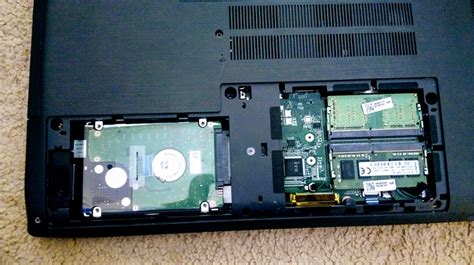Prerequisites:
- Access and permission to at least one managed node that will be configured with the sshd system role.
- Red Hat Ansible Core installed on the control node, which will be used to configure the systems.
- Inventory file containing the list of managed nodes.
Procedure:
- Copy the example playbook for the sshd system role:
# cp /usr/share/doc/rhel-system-roles/sshd/example-root-login-playbook.yml path/custom-playbook.yml
- Edit the copied playbook using a text editor, such as Vim:
# vim path/custom-playbook.yml
Here's an example of what the playbook might look like:
---
- hosts: all
tasks:
- name: Configure sshd to prevent root and password login except from particular subnet
include_role:
name: rhel-system-roles.sshd
vars:
sshd:
# root login and password login is enabled only from a particular subnet
PermitRootLogin: no
PasswordAuthentication: no
Match:
- Condition: "Address 192.0.2.0/24"
PermitRootLogin: yes
PasswordAuthentication: yes
This playbook configures the SSH server to prevent root and password login by default, but allows it only from a specific subnet (192.0.2.0/24).
- Check the syntax of the playbook:
# ansible-playbook --syntax-check path/custom-playbook.yml
- Run the playbook using the inventory file:
# ansible-playbook -i inventory_file path/custom-playbook.yml
Output:
PLAY RECAP
**************************************************
localhost : ok=12 changed=2 unreachable=0 failed=0
skipped=10 rescued=0 ignored=0
- Verify the configuration by logging in to the SSH server:
$ ssh [email protected]
- Check the contents of the
/etc/ssh/sshd_configfile:
$ vim /etc/ssh/sshd_config
The output should look similar to this:
# Ansible managed
HostKey /etc/ssh/ssh_host_rsa_key
HostKey /etc/ssh/ssh_host_ecdsa_key
HostKey /etc/ssh/ssh_host_ed25519_key
AcceptEnv LANG LC_CTYPE LC_NUMERIC LC_TIME LC_COLLATE LC_MONETARY LC_MESSAGES
AcceptEnv LC_PAPER LC_NAME LC_ADDRESS LC_TELEPHONE LC_MEASUREMENT
AcceptEnv LC_IDENTIFICATION LC_ALL LANGUAGE
AcceptEnv XMODIFIERS
AuthorizedKeysFile .ssh/authorized_keys
ChallengeResponseAuthentication no
GSSAPIAuthentication yes
GSSAPICleanupCredentials no
PasswordAuthentication no
PermitRootLogin no
PrintMotd no
Subsystem sftp /usr/libexec/openssh/sftp-server
SyslogFacility AUTHPRIV
UsePAM yes
X11Forwarding yes
Match Address 192.0.2.0/24
PasswordAuthentication yes
PermitRootLogin yes
- Verify that you can connect to the SSH server as root from a machine in the 192.0.2.0/24 subnet:
$ hostname -I
192.0.2.1
$ ssh [email protected]
Additional Resources:
/usr/share/doc/rhel-system-roles/sshd/README.mdfile.ansible-playbook(1)help page.
By following these steps, you can configure the SSHD system role on RHEL systems using Ansible.
